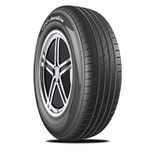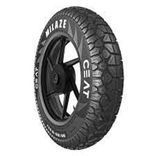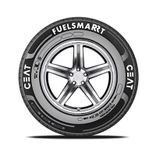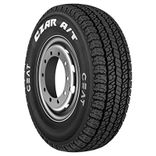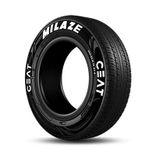Ad
Ad
Brake Fluid Types Explained: DOT 3, DOT 4, DOT 5 – Which One to Use?
This article explains the different types of brake fluids (DOT 3, DOT 4, DOT 5, DOT 5.1) and which one to use in your vehicle.
Ad
Ad

The braking mechanism is the most important part of a vehicle's safety as it helps your vehicle reduce and regulate speed on the road. Brake fluids help the mechanism to transfer the force applied to the brake pedal to the brake pads on the wheels. It also has lubricating and anti-corrosion properties that improve the functionality and performance of the braking system, while extending its service life. These factors make the choice of brake fluid so important in giving you full control of your speed.
Today, we will shed light on brake fluids, their types and help you to choose which one to use.
What are Brake Fluids?
Brake fluids are the type of hydraulic fluids in your vehicle's braking system that convert the power you put into the brake pedal into pressure, activating the brake pads to bring the vehicle to a stop. These fluids are designed to maintain a uniform thickness across temperatures, ensuring that the brakes function well in all conditions.
Types of Brake Fluids
As a car owner, you should understand what brake fluid does and how it contributes to the braking system's performance. It is also important to understand the distinctions between several types of braking fluids, each with its own Department of Transportation (DOT) number.
DOT 3
This is among the most common types of braking fluid. It has a glycol base and the lowest boiling point among other fluid types below. It also absorbs moisture from the air. Most of the vehicles today are using DOT 3 brake fluid.
DOT 4
DOT 4 brake fluid is identical to DOT 3 which is also based on glycol. However, the only difference between DOT 3 and DOT 4 is that DOT 4 has a higher boiling point. This makes this fluid more efficient in extreme temperatures. It's also extremely prevalent and can be used in a variety of vehicles.
DOT 5
DOT 5 is a different type of brake fluid that is based on Silicon instead of Glycol which has a higher boiling point. This kind of fluid is compatible with ABS-enabled vehicles because it can become forty when ABS is activated. Furthermore, you can not mix DOT 5 with DOT 3, 4, and 5.1. If you want to switch from glycol-based brake fluid to silicon-based brake fluid, then you have to flush the system completely before putting the oil in.
DOT 5.1
This DOT 5.1 is an enhanced version of the DOT 4. It has an increased boiling point, which helps to maintain braking efficiency in extreme temperatures. However, this fluid requires more frequent replacement because it absorbs moisture faster than the others.
NOTE: All glycol-based brake fluids must be handled with caution since they can damage the paintwork of a vehicle's body.
Also Read: Clutch Fluid vs. Brake Fluid: Are They the Same?
Which Brake Fluid Should I Use?
You should always refer to the vehicle’s owner handbook for brake fluid recommendations. In addition, you can also see the recommended brake fluid details at the cap of the brake fluid container in your vehicle.

In general, DOT 4 or DOT 4 LV (Low-Viscosity) fluids meet the technical standards of 90% of cars on the roads around the world. These fluids can be used on any car/motorcycle, from the oldest to the newer models, even those with ABS. However, it is always important to follow the manufacturer’s guidelines.
Can I Mix Brake Fluids?
The braking system of a vehicle is designed to use a specific fluid. As a result, the car should continue to utilise that exact type of fluid for all of its service life, particularly because the internal components of the braking system were developed, selected, and tested to work with that specific fluid. Although DOT 3 and DOT 4 fluids are all glycol-based, their chemical compositions differ, resulting in a varied effect on the system. To ensure that the system operates properly, continue to use the manufacturer's suggested brake fluid.
Alternatively, if you want to improve the performance of your brakes, you can use brake fluid with higher specifications than the originals. As a result, it is acceptable to change from DOT 3 to DOT 4, or from DOT 4 to DOT 4 LV. However, switching to a lower DOT than the manufacturer's recommendation is risky.
CarBike360 Says
Brake Fluids are a very essential component of the braking system. They not just only transmit the pressure from the brake pedal to the brake caliper but also help in preventing corrosion in the braking mechanism. Most of the vehicles use DOT 4 brake fluid but it is always advisable to check the manufacturer's guidelines before using it in your vehicle.
More Articles

Meet the Hero Vida V1: Sleek, Smart, and Sustainable
The Hero Vida V1 electric scooter offers sleek design, innovative technology, and impressive performance. Learn about its features, variants, pricing, and competition in India’s growing electric vehicle market.
20-Feb-2025 12:01 PM
Read Full Article
Meet the Hero Vida V1: Sleek, Smart, and Sustainable
The Hero Vida V1 electric scooter offers sleek design, innovative technology, and impressive performance. Learn about its features, variants, pricing, and competition in India’s growing electric vehicle market.
20-Feb-2025 12:01 PM
Read Full Article
Do Engine Oil Additives Really Improve Your Vehicle's Performance?
This article provides an in-depth overview of engine oil additives, explaining what they are, how they function, and whether they’re worth using in your vehicle.
12-Feb-2025 11:14 AM
Read Full Article
Do Engine Oil Additives Really Improve Your Vehicle's Performance?
This article provides an in-depth overview of engine oil additives, explaining what they are, how they function, and whether they’re worth using in your vehicle.
12-Feb-2025 11:14 AM
Read Full Article
How to Choose the Right Lubricants for Your Car, Bike, and Scooter
Learn how to choose the right lubricants for your vehicle, whether it’s a car, bike, or scooter. This guide covers essential factors such as engine oil, transmission fluids, and maintenance tips to ensure optimal performance and longevity.
12-Feb-2025 05:57 AM
Read Full Article
How to Choose the Right Lubricants for Your Car, Bike, and Scooter
Learn how to choose the right lubricants for your vehicle, whether it’s a car, bike, or scooter. This guide covers essential factors such as engine oil, transmission fluids, and maintenance tips to ensure optimal performance and longevity.
12-Feb-2025 05:57 AM
Read Full Article
Impact of Poor Lubrication on Your Vehicle’s Performance and Longevity
Lubrication is key to your vehicle’s performance and longevity. This article covers the effects of poor lubrication, its causes, and tips to prevent it, ensuring your vehicle runs smoothly and lasts longer.
10-Feb-2025 07:32 AM
Read Full Article
Impact of Poor Lubrication on Your Vehicle’s Performance and Longevity
Lubrication is key to your vehicle’s performance and longevity. This article covers the effects of poor lubrication, its causes, and tips to prevent it, ensuring your vehicle runs smoothly and lasts longer.
10-Feb-2025 07:32 AM
Read Full Article
How to Read Engine Oil Labels: Understanding API, ACEA, and SAE Ratings
Learn how to read your vehicle’s engine oil label and make informed decisions to improve engine health and longevity. This guide explains essential information such as the SAE code, API standards, and manufacturer certifications.
07-Feb-2025 08:17 AM
Read Full Article
How to Read Engine Oil Labels: Understanding API, ACEA, and SAE Ratings
Learn how to read your vehicle’s engine oil label and make informed decisions to improve engine health and longevity. This guide explains essential information such as the SAE code, API standards, and manufacturer certifications.
07-Feb-2025 08:17 AM
Read Full Article
Clutch Fluid vs. Brake Fluid: Are They the Same?
Brake and clutch fluids are crucial for the performance and safety of your vehicle. This article explains their functions, maintenance tips, and when to know it's time to inspect or replace these fluids.
05-Feb-2025 12:19 PM
Read Full Article
Clutch Fluid vs. Brake Fluid: Are They the Same?
Brake and clutch fluids are crucial for the performance and safety of your vehicle. This article explains their functions, maintenance tips, and when to know it's time to inspect or replace these fluids.
05-Feb-2025 12:19 PM
Read Full ArticleAd
Ad






